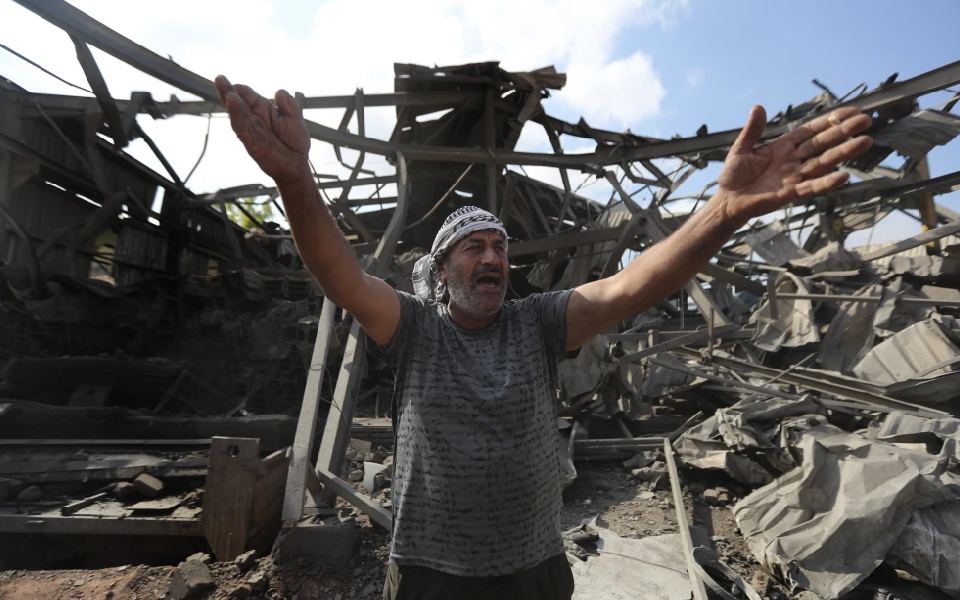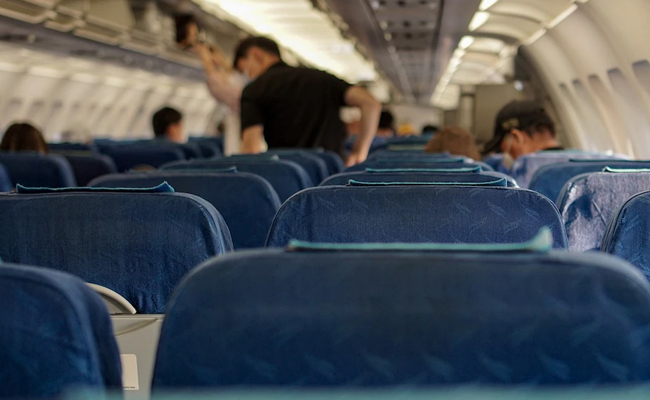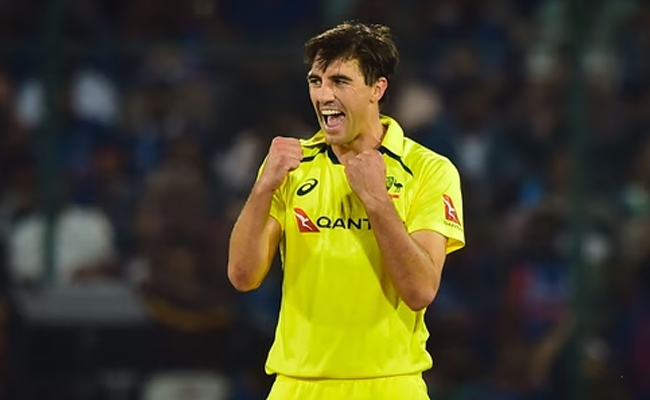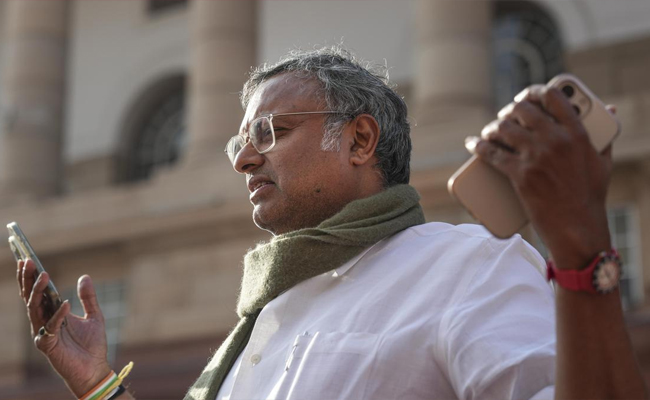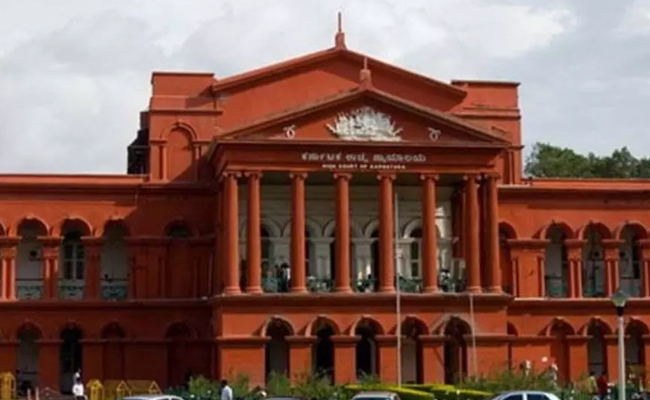Nabatieh (Lebanon), Aug 17: An Israeli strike in southern Lebanon early Saturday killed at least 10 Syrian nationals, according to Lebanon's Health Ministry.
The strike on Wadi al-Kfour in Nabatieh province is among the deadliest in Lebanon since the Hezbollah group and Israeli military started trading strikes on October 8, a day after Hamas attacked southern Israel and sparked the Israel-Hamas war in Gaza. Hezbollah maintains that it will stop its attacks once a cease-fire is reached in the Gaza Strip.
Among the dead were a woman and her two children, the ministry said. Five others were wounded, two of whom in critical condition.
An Arabic-language spokesperson for the Israeli military, Avichay Adraee, said the strike in the southern province targeted a weapons depot belonging to Hezbollah.
Mohammad Shoaib, who runs a slaughterhouse in Wadi al-Kfour, said the area struck was an “industrial and civilian area” that contained factories producing bricks, metal, and aluminum, as well as a dairy farm.
The uncle of three of the people killed in the strike said they were factory workers who were in their housing accomodation when they were hit. He denied that there were weapons at the facility.
“There was nothing at all like that,” Hussein Shahoud said. “There was metal for construction, for building, for all kinds of purposes.”
Hezbollah later announced it had fired a volley of rockets at the community of Ayelet HaShahar, near Safad in northern Israel in retaliation for the strike.
The statement said that all 10 victims in Lebanon were civilians. Hezbollah typically issues death notices when its members are killed.
The Israeli army said 55 projectiles were identified crossing from Lebanon, some of which fell in open areas. No injuries were reported, but the strikes ignited multiple fires, it said. Earlier Saturday, two Israeli soldiers were injured, one seriously, by a strike coming from Lebanon that hit the area of Misgav Am.
The Israeli military also said it had killed a Hezbollah commander Saturday in a separate strike in the area of the coastal city of Tyre. Lebanese state media reported that one person was killed in a strike on a motorcyclist near Tyre. Hezbollah did not immediately give any statement on the person's identity.
The Lebanese government and international governments have scrambled for weeks to put an end to the monthslong clashes, with the region on a knife edge since July.
An Israeli strike last month in southern Beirut killed Hezbollah's top commander, whom Israel accused of leading a rocket attack on the Israeli-occupied Golan Heights that killed 12 youths. Hours later, an explosion widely blamed on Israel killed Hamas political leader Ismail Haniyeh in the Iranian capital.
Both Tehran and Hezbollah vowed to retaliate, but have not yet launched strikes as diplomatic endeavors and Gaza cease-fire talks continue in Qatar.
Hezbollah and Israel fought a six-week war in the summer of 2006 that ended in a draw. Hezbollah's military capabilities have developed significantly since then.
More than 500 people have been killed by Israeli strikes since October 8, most of them fighters with Hezbollah and other armed groups but also including around 100 civilians and noncombatants.
In norther Israel, 22 soldiers and 24 civilians have been killed by strikes from Lebanon. Tens of thousands of people have been displaced on both sides of tense frontier.
Also Saturday, Lebanon's state utility Electricite du Liban announced that its power plants had exhausted their supply of fuel oil and would stop producing electricity until more supply is secured.
Lebanon has struggled with severe electricity shortages for years, particularly since the country fell into a protracted financial crisis in 2019. Homes and businesses rely largely on generators and, increasingly, solar panels for power as the state typically supplies electricity only a few hours a day.
The meagre state electricity supply relies on fuel oil provided by Iraq, but issues have arisen between the two countries due to Lebanon not having paid for the supply.
Let the Truth be known. If you read VB and like VB, please be a VB Supporter and Help us deliver the Truth to one and all.
New Delhi (PTI): At least 10 flights were cancelled and more than 270 flights were delayed at the Delhi airport due to fog and low visibility conditions on Tuesday.
An official said 6 arrivals and 4 departures have been cancelled for the day.
ALSO READ: Central laboratory confirms avian flu outbreak in parts of Alappuzha, Kottayam districts
Over 270 flights have been delayed and the average delay time for departures is 29 minutes, as per information available on flight tracking website Flightradar24.com.
"Visibility at the airport is improving; however, flight departures for certain destinations may experience delay," Delhi airport operator DIAL said in a post on X.
The Indira Gandhi International Airport (IGIA) in the national capital handles around 1,300 flight movements daily.

